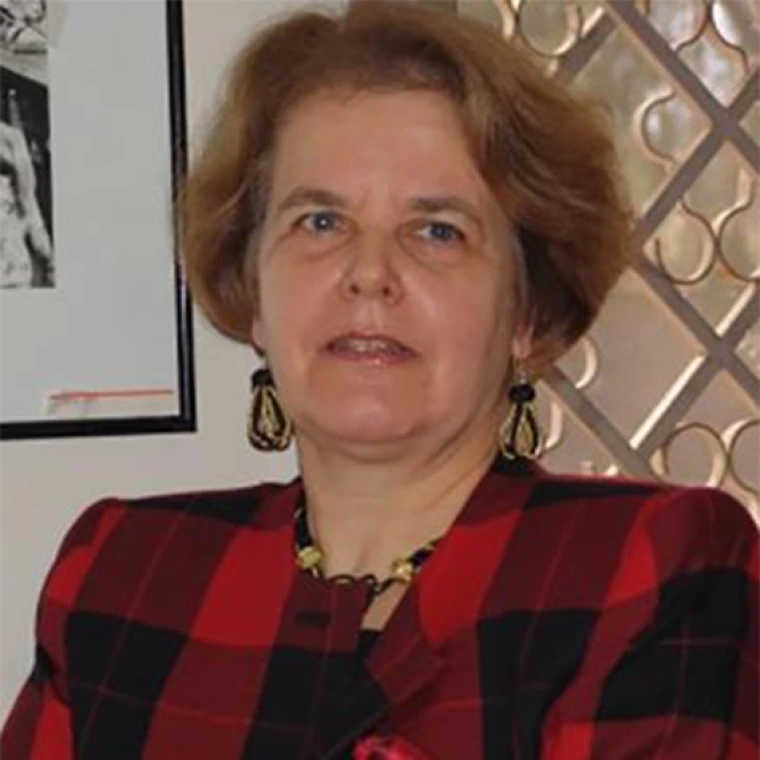Evelyn A. Early

New Mexico, Washington, D.C., Abroad
Besides Evelyn’s teaching, academic research and writing, she has served as Counselor of Press and Cultural Affairs at the American Embassy in Rabat, the Director of the American Cultural Center in Khartoum, Sudan; the Country Affairs Officer for North African in USIA in Washington; the Director of the American cultural Center in Damascus; and the Counselor of Press and Cultural Affairs at the American Embassy in Prague, Czech Republic.
How did CASA help inform your career path?
CASA was key to the next 44 years of my dual-track academic/diplomacy career. I have utilized the Arabic I learned in CASA to complete my master’s degree at AUB, my PhD at the University of Chicago, and in teaching, researching, consulting, and diplomacy ever since.
What job or path of study did you pursue after the CASA program?
My Summer CASA program was book-ended by a two year Masters in Middle East Studies at the American University of Beirut (AUB) where I enrolled in “Arabic for Foreigners” with some dozen Iraqis who spoke colloquial Arabic fluently but were illiterate in written Arabic. After completing the CASA full-year program, I attended the University of Chicago for my PhD in anthropology, where my research in the baladi (traditional) quarter Bulaq Abu ‘Ala, Cairo, was conducted entirely in Egyptian Arabic. My career has been dual track – academic research and writing as well as public policy and development. I taught at the universities of New Mexico, Notre Dame, and Houston from 1979 to 1985, worked as a diplomat from 1985 to 2011, and have been researching and publishing from 1969 to the present, and working as a consultant from 1982 to the present. My CASA-gained fluency in spoken standard Arabic and in Egyptian colloquial has been critical to my success in both tracks. In consulting for USAID public health projects, I used Arabic as the medium to train health service researchers and to interview participants in such projects as Egyptian Mother Child Health (MCH) Clinics and Yemeni Local Birth Attendant Training. In 1985, I was recruited for a mid-level Arabist program in the U.S. press and cultural services (USIA, which later became Public Diplomacy in the State Department). As a diplomat in Sudan, Morocco, and Syria I recorded stand-ups for newscasts and live talk shows on Syrian and Moroccan television. I spoke Arabic in host country meetings and in public lectures on policy as well as anthropology.
Do you have any recent academic or professional successes that you would like to share with fellow CASA alumni?
Last year, Donna Lee Bowen (CASA alumna), Becky Schulthies (an Arabic student at BYU, AU, and ALEF Morocco) and I co-edited the third edition of Everyday Life in the Muslim Middle East (Indiana University Press, 2014). The book aims to correct media stereotypes by providing real life vignettes which resonate with non-Muslim readers. My articles in the three editions are all based on research conducted in Arabic. Also, in the first edition I translated a short story by Dr. Abdul Salam Oujaili, “At- Tibb an-Nabawi,” from Arabic to English – my only published translation. CASA played a significant role in our book. Nine of the authors are CASA graduates: Donna Lee Bowen, Sherine Hamdy, Samer Shehata, Diane Singerman, Kristina Nelson, Walter Armbrust, Jonathan Shannon, Susan Slyomovics, and myself.
What was your favorite memory from CASA?
I loved to sit in the AUC garden eating pastries and drinking coffee, watching tennis matches and students flirting. I went to every Arabic film possible; once a friend and I sat in the only seats left, downstairs, to see Suad Hussny in Al-Hubb Al-Da’i and emerged with our hair full of pumpkin seed (lib) shells tossed from the balcony. One night Judith Gran and I attended a concert where we met Sakkina Sadat, who invited us to her editor’s office at the women’s magazine al-Hawa’a. Sakkina wrote a two-page story on us, complete with a colored photo, which said “the two American women met amongst the pillars of Al Azhar…” I was concerned that some details had been confused, but all my Egyptian friends thought the article was wonderful and told me not to fuss at such inaccuracies.
What advice would you give to current CASA Fellows?
Don’t be afraid to ask for the training you need. I insisted on Egyptian colloquial and also on oral comprehension. Practice with Professor Hassanayn and using a reel-to-reel tape recorder to listen to segments of news casts was the most effective tool for me. Listen continually to Arabic media—radio, television, films—and go to any Arabic-speaking event you can. Take courses outside CASA. My class with Egyptian students on Ibn Khaldun was exciting, even though I spent several hours a night reading, with help from an Egyptian friend, the assignment for the next day.

